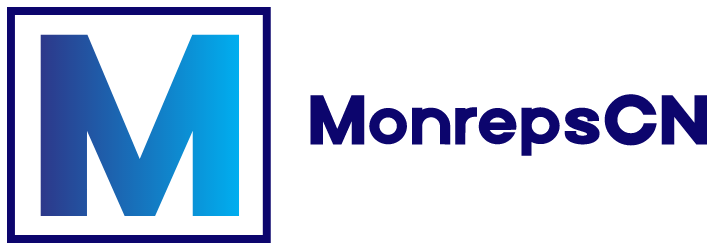Applying to graduate school is an exciting and challenging process. Your application’s most crucial section, the personal statement, allows you to emphasize your goals, interests, and background. Developing a strong and thoughtful personal statement is necessary to be accepted into selective programs. An excellent personal statement must be written as a concise story that highlights the applicant’s academic achievements, career goals, and personal traits; write my personal statement for me can ensure clarity and effectiveness in your application materials.
Follow these tips to craft the best personal statement and put your best foot forward with admissions committees.
Understand the Purpose
Make it clear to admissions committees what they hope to learn from your statement before you start writing. They are seeking candidates who will make a significant contribution to the program, are ready for the demands of intense graduate study, and have well-defined academic and professional ambitions. Convey your fit by highlighting relevant skills, knowledge, and experiences. Show genuine interest in the field and program. The statement should complement, not repeat, information in other parts of your application.
Crafting A Strong Personal Statement
Brainstorm Content
Begin by brainstorming accomplishments, interests, motivations, challenges, lessons learned, future goals, and other potential topics. Focus on 1-3 key themes you want to develop rather than covering too much. Think about compelling anecdotes and examples that illustrate the themes. Outline the general flow and structure.
Address Prompts Directly
In academic contexts, the option to buy essay online may serve as a resource for individuals seeking assistance in completing assignments within specified deadlines while maintaining adherence to academic integrity standards. Read the prompts carefully and ensure you respond fully. Avoid generic statements that could apply to any program. Demonstrate you understand the specific program and have clear reasons for applying. If allowed, you may lightly customize statements for each school.
Open Strong
Grab attention right away with an engaging opening sentence or story. It might be an anecdote that captures a key moment of discovery in the field. Or, jump right into your motivations and interests. Build intrigue and make admissions committees want to keep reading.
Emphasize Fit
Give a detailed explanation of your motivation for this program and how it fits into your overall plan for your academic and professional career. Describe in further detail the laboratories, program, setting, mentors, and any other aspects that pique your interest. Show you understand how the program will help you achieve your goals.
Share Key Experiences
Choose 1-3 pivotal experiences to spotlight in detail: research projects, internships, jobs, classes, volunteer work, etc. Describe what you accomplished, skills applied, knowledge gained, and impact made. Reflect on the significance. This provides evidence you are prepared for graduate-level work.
Demonstrate Skills and Qualities
Beyond concrete experiences, emphasize transferable skills and personal qualities that will make you successful. These may include communication, leadership, persistence, creativity, time management, initiative, teamwork, and more. Use vivid examples to illustrate these capacities. Help programs understand what unique assets you offer.
Be Genuine and Memorable
Reveal your personality, passions, and individual perspective. Share something unexpected to make you stand out. Be meticulous with details to bring experiences to life. Add color with humor, analogies, or creative prose when appropriate. Distill your voice and spirit into the statement.
Explain Gaps or Blemishes
If needed, briefly clarify any resume gaps, low grades, disciplinary issues, or other potential red flags. Offer context and lessons learned, focusing on maturity and growth. Demonstrate you have moved past challenges and are ready to succeed.
Outline Goals and Plans
Highlight 1-2 specific academic interests you want to pursue in graduate school and initial post-graduate goals. Discuss desired areas of involvement such as research, student organizations, internships, jobs, volunteering, conferences, study abroad, etc. Convey realistic plans for building skills and experience.
Close Strong
Conclude by restating your motivations, qualifications, and alignment with the program. Express enthusiasm and reiterate you are an excellent fit. Thank the admissions committee for considering your application. End with confidence!
Revising For A Polished Essay
Set Aside Before Revising
Once you have a complete draft, step away for a day or two before revising. This allows you to approach the essay with fresh eyes. Read it aloud to catch awkward phrasing. Print a copy to edit by hand.
Verify Alignment with Prompts
Cross-check that you directly responded to all parts of the prompts. Assess if the content reflects and supports your stated goals. Make sure your essay fits within the required length limits.
Refine Content
Critically review each paragraph. Tighten verbose passages. Add details and examples if sections feel light. Adjust content to highlight your desired themes and reinforce fit. Cut irrelevant or redundant information.
Improve Flow and Transitions
Organize paragraphs in the best possible order. Craft smooth transitions between ideas using bridges, signposts, and other devices. Rearrange or blend paragraphs if needed. Verify the statement flows logically overall.
Polish Writing Style
Carefully edit sentences to improve clarity, variety, and cadence. Break up long, complex sentences for enhanced readability. Vary sentence openings. Tighten wordy phrases. Add vivid descriptors and action verbs. Delete unnecessary words.
Perfect Grammar and Format
Correct any grammar, spelling, or punctuation errors that detract from the writing. Use style guides to ensure proper format, citations, and tone. Follow all instructions for length, font, margins, and other requirements.
Get Feedback
Ask mentors, professors, and peers to review your statement and provide candid feedback. Revise based on their critiques. They may catch issues you overlooked and have valuable input from other perspectives.
With thorough preparation, reflection, and revision, you can produce an outstanding personal statement that helps differentiate you in the competitive admissions process. Be proud of the final essay that shares who you are and where you hope to go as a future graduate student.









Leave a Reply